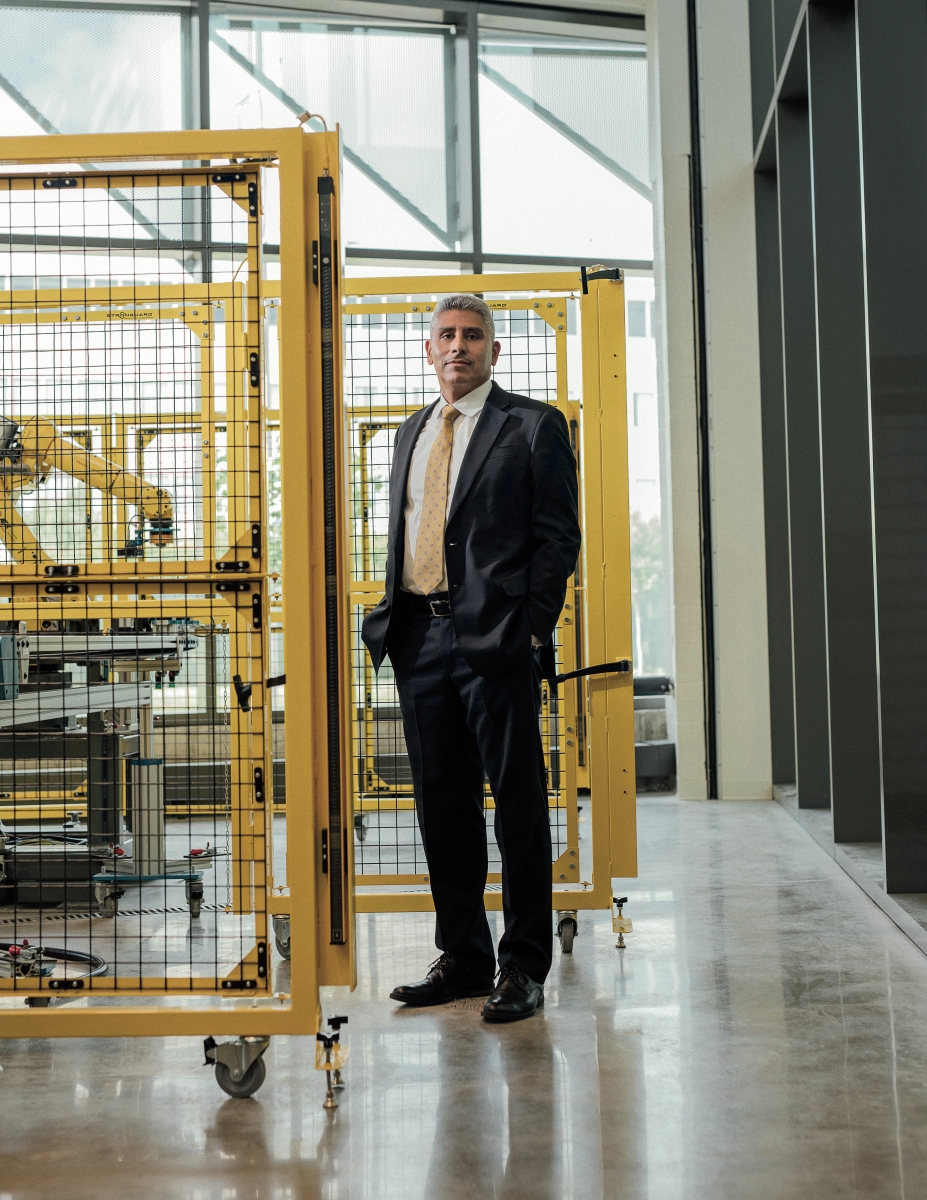
Would you catch me up on the reinvention plan that’s been going on the past few years?
This reinvention was my predecessor’s effort. I wouldn’t call my efforts reinvention. I have talked about it in this way because I’m focused on what I’m doing to help grow our impact in creating an inclusive Chicago economy. We opened up in the last two years the manufacturing Technology and Engineering Center at Richard J. Daley College to ensure that our students can be prepared for both manufacturing and engineering occupations. We opened up the Olive-Harvey Transportation Distribution and Logistics Center out on the South Side to ensure that we’re prepared for the fastest-growing occupations.
To that end, City Colleges of Chicago has been moving away from a replication model, in which programs are duplicated across campuses, and toward a specialization model, in which each college is designated as a “center of excellence” in a certain field. Why?
I believe in sector-based work in order to ensure student inclusion in the economy. Having each college be an expert in every field would be very hard to execute. For example, Daley College has advanced manufacturing equipment, and Olive-Harvey has a facility where students can learn how to be diesel mechanics. Those are capital-intensive investments. We do not have the capital resources, nor would that be the wisest use of our resources, to build these centers across every college. Where we don’t have capital-intensive requirements — fields like early childhood education, we have operating in six campuses right now.
But if I want to specialize in one of these fields, a fantastic program located 12 miles away doesn’t do me any good if I don’t have the time or ability to travel there on a regular basis, right?
I don’t want to minimize the hardship. We have to be very real. These students are about to enter a marketplace where, by and large, they’re going to have to travel for work. So beginning to make the arrangements, I think, is important.
Any idea why enrollment has dropped 37 percent since 2011?
We had a historic loss of a population that’s traditional to City Colleges of Chicago, particularly in the African American community and in traditional immigrant areas on the North Side that have become more and more gentrified. When higher education in the state was under attack, neighboring states saw that as an opportunity to build new pipelines, making offers to students that made us look pretty bad. All of that is tough to overcome.
City Colleges’ adult education program — for English-language learners and students getting their GED — has seen some controversy lately over the proposed reduction of teachers’ hours. One member of the teachers’ union has said you’re trying to turn it into a “Walmart education model.”
Right now it is not a high-performing program, and I’m determined to address quality. That means we have to have a structured course sequence, so we’re not going to have you take a level 1 course on the South Side that’s not synonymous with a level 1 course on the North Side. What’s hard about this is it requires change on the part of our faculty, right? And change is sometimes hard.
This interview has been edited for length and clarity.




Comments are closed.